Frederik Vogeler
Machine learning for automated quality control in injection moulding manufacturing
Jun 30, 2022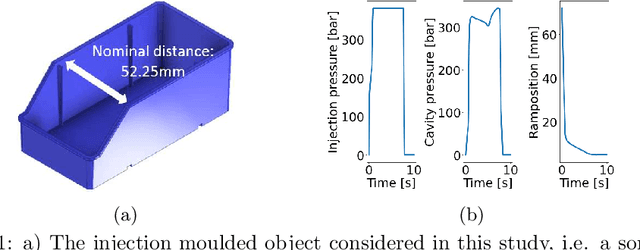
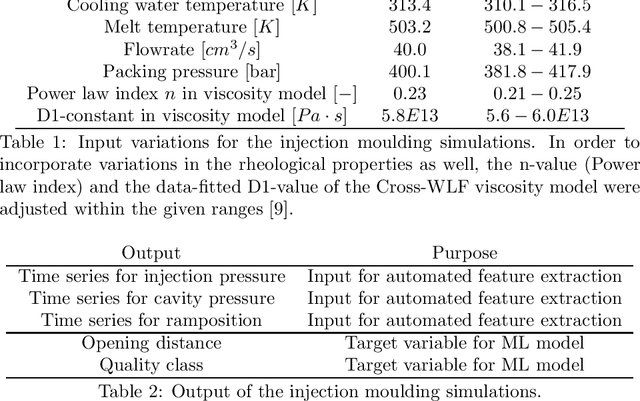
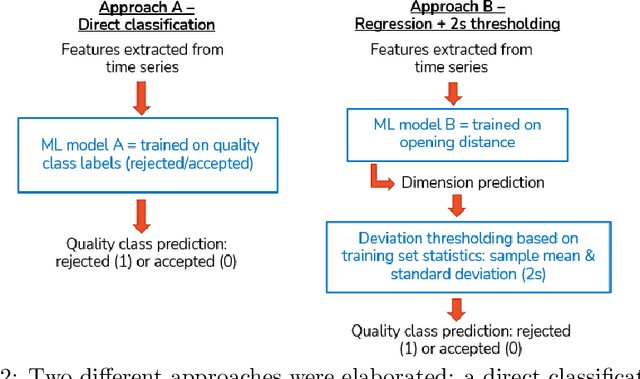

Abstract:Machine learning (ML) may improve and automate quality control (QC) in injection moulding manufacturing. As the labelling of extensive, real-world process data is costly, however, the use of simulated process data may offer a first step towards a successful implementation. In this study, simulated data was used to develop a predictive model for the product quality of an injection moulded sorting container. The achieved accuracy, specificity and sensitivity on the test set was $99.4\%$, $99.7\%$ and $94.7\%$, respectively. This study thus shows the potential of ML towards automated QC in injection moulding and encourages the extension to ML models trained on real-world data.
Process Monitoring of Extrusion Based 3D Printing via Laser Scanning
Dec 07, 2016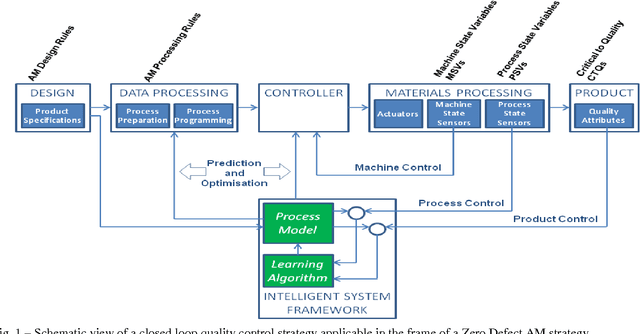

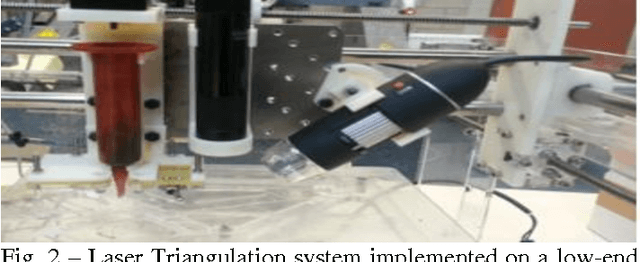

Abstract:Extrusion based 3D Printing (E3DP) is an Additive Manufacturing (AM) technique that extrudes thermoplastic polymer in order to build up components using a layerwise approach. Hereby, AM typically requires long production times in comparison to mass production processes such as Injection Molding. Failures during the AM process are often only noticed after build completion and frequently lead to part rejection because of dimensional inaccuracy or lack of mechanical performance, resulting in an important loss of time and material. A solution to improve the accuracy and robustness of a manufacturing technology is the integration of sensors to monitor and control process state-variables online. In this way, errors can be rapidly detected and possibly compensated at an early stage. To achieve this, we integrated a modular 2D laser triangulation scanner into an E3DP machine and analyzed feedback signals. A 2D laser triangulation scanner was selected here owing to the very compact size, achievable accuracy and the possibility of capturing geometrical 3D data. Thus, our implemented system is able to provide both quantitative and qualitative information. Also, in this work, first steps towards the development of a quality control loop for E3DP processes are presented and opportunities are discussed.
* International Conference on Polymers and Moulds Innovations(PMI) 2014
 Add to Chrome
Add to Chrome Add to Firefox
Add to Firefox Add to Edge
Add to Edge